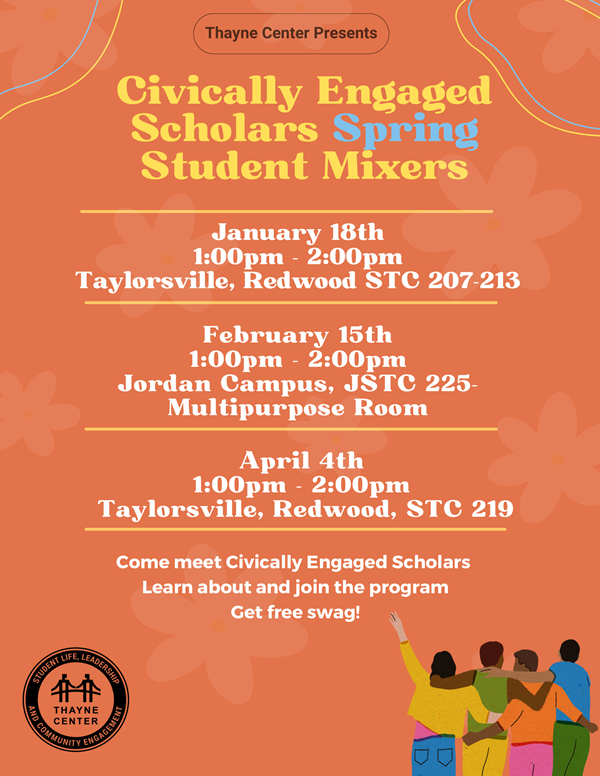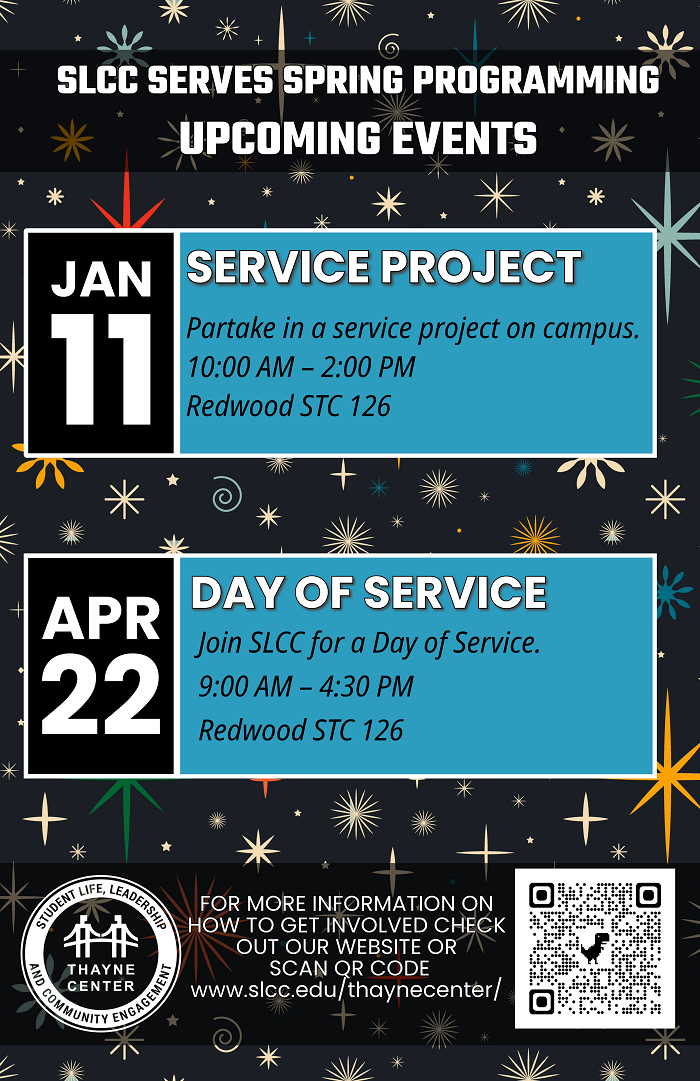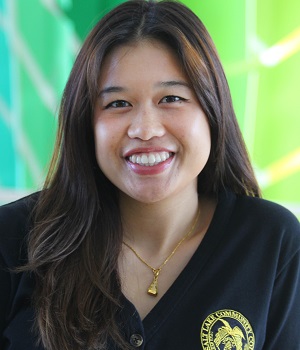Civically Engaged Scholars (CES)
What is CES?
Civically Engaged Scholars is a degree distinction seeking program, designed to encourage students to get involved with their local community members through a critically conscious lens. Students get the chance to learn in the classroom the importance of getting involved and then have opportunity to practice what they learned with one of our many local community partners.

- Non-Credit Canvas Course (added manually by coordinator)
- Meet with Peer Leader at least TWICE a semester
- Complete e-Portfolio
- Attend and Present at Spring Showcase
- Attend the Civic Leadership Conference
- Graduate with a 3.0 Grade Point Average (GPA)
- Complete 300 hours of Engagement (see table 1)
- Community Engaged Learning Courses
- Community Engagement Hours
Table 1
| Requirements | Community Engaged Learning Course | Community Engagement Hours |
| What it Means |
Academic Classroom Learning |
Community Engagement Hours |
| How you can achieve it |
Hours that count: |
Benefits:
- Special Distinction for transcript
- Designation at Graduation with blue honors cord
- Front row placement during commencement
- A letter from the President for graduating with CES
- E-Portfolio with Civic Engagement material
- Civic Leadership Conference
- Saturday, March 16th 2024, University of Utah, Time; 9 a.m.-3 p.m.

- Spring Showcase
-
Friday, April 26th, 2024, 12:45 pm - 1:45 pm
Miller Campus – MPDC Rm. 209/213
-
- Graduation Information
- Commencement, Friday May 3rd, 2024, Maverick Center for more information follow the link.
The Six Pathways are:
- Community Engaged Learning and Research: Connecting coursework and academic research to community-identified concerns to enrich knowledge and inform action on social issues.
- Community Organizing and Activism: Involving, educating, and mobilizing individual or collective action to influence or persuade others.
- Direct Service: Working to address the immediate needs of individuals or a community, often involving contact with the people or places being served.
- Philanthropy: Donating or using private funds or charitable contributions from individuals or institutions to contribute to the public good.
- Policy and Governance: Participating in political processes, policymaking, and public governance.
- Social Entrepreneurship and Corporate Social Responsibility: Using ethical business or private sector approaches to create or expand market-oriented responses to social or environmental problems.
The purpose of Civically Engaged Scholars is to develop, implement, and foster civic and community engagement; nourishing mutual transformative relationships between community organizations and members with SLCC, both as a community and as an institution, will bring equity and justice into the lives of many.
The vision of Civically Engaged Scholars is to prepare students for a life of engagement with systems, institutions, and community partners; thus, assisting communities to achieve liberation and self-determination by providing foundational knowledge to approaches and tools of civic engagement.
Contact Us

Christina Souknarong
Coordinator, Student Civic Engagement
Campus:
Taylorsville
Building:
Student Center
Room:
124K
Phone:
801-957-4674
Email: